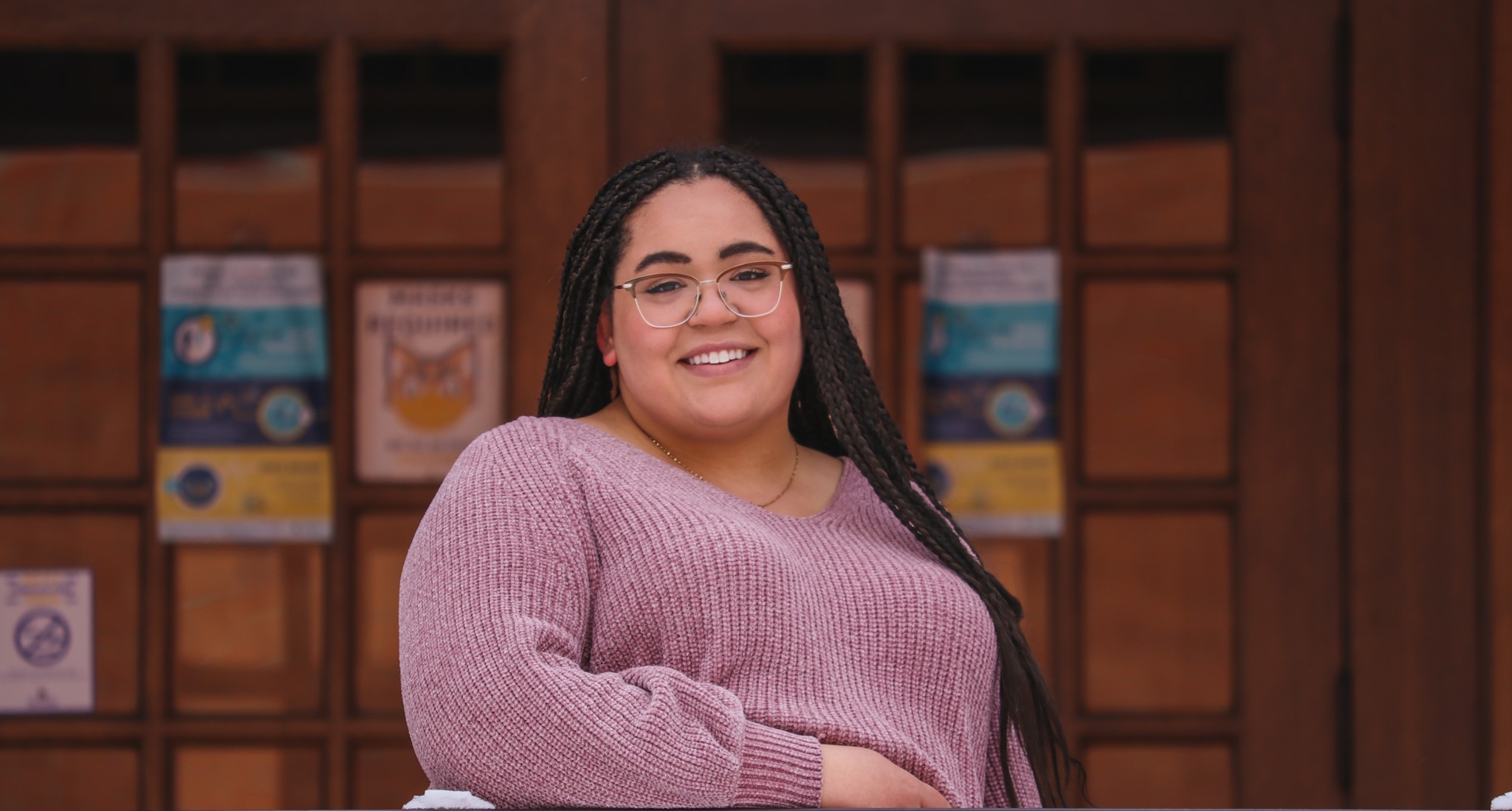DEIA Spotlight - Lyla Brown

Meet Our Graduate Student Representative for the CLS DEI Committee - Lyla Brown!
Active in the Black Student Union and a recipient of the African American Leaders in the Pacific Northwest, Lyla graduated last year with an undergraduate degree in psychology and sociology and is currently a graduate student in Adult and Higher Education. Her research, which she began as an undergraduate, focuses on DEI efforts across the Big Sky Conference, helping us understand the changing landscape of DEI work better and be forward-thinking in our student support efforts. She is a Graduate Assistant for Education and Mentorship in the Diversity and Inclusion Student Commons (DISC). In that role, she manages the Safe Zone Education program and co-manages the AIM mentorship program. You can read more from Lyla below.
What's the one thing we need to know about Lyla Brown?
I am very passionate about education! I never thought I would go to college when I was in high school, let alone attend graduate school. I am very passionate about empowering other students to create a future for themselves that they will be proud of and creating a campus climate they are proud of. I love chatting with and meeting students from different backgrounds, seeing how everyone's individual paths have led them to MSU, and seeing how DEI work fits into and impacts their lives. Additionally, I think it is vital that to know me, people need to know that I love baking! Even the complicated recipes that are not worth all the work, I find fun and interesting too!
Can you tell us a little about your research and how you see it changing the culture at MSU?
In my last year [as an undergraduate] at MSU, I worked on an internship and completed a research project exploring DEI efforts at other universities within the Big Sky Conference. I talked with administrators from other universities about what DEI means to them and how programs are implemented on different campuses. This project helped put into perspective what other campuses are doing in terms of DEI work and how we can create and mold programming to meet the changing needs of students. With this project's findings, we adjusted our programming to fit the needs of a broader range of students on campus. Finally, this project leads to a further understanding of the changing landscape of DEI work and remaining forward-thinking in our student support programs.
What initially led you to DEI work?
As a sophomore undergraduate student, I saw a need for a community for Black students, so I started engaging with DEI on our campus. From this personal experience, I co-founded the Black Student Union in 2018 and began working more closely with the DISC. Ultimately, I was led to DEI work because I saw the importance of the work in my life and those around me. I wanted to create change that would impact those currently at MSU and be a part of the efforts to sustain that change.
Please tell us what you are doing in the DISC office now.
I am currently the Graduate Assistant for Education and Mentorship. I manage our SafeZone program, which is MSU's SafeZone education and awareness program. I also co-manage our AIM (All-Inclusive Mentorship) Program. This program matches mentees from diverse backgrounds with mentors who match their needs. Some of these backgrounds include race and ethnicity, gender identity, socioeconomic status, and many more! In addition to these two programs, I also help student organizations with event planning and execution. We support the International Student Organization with multicultural events and help plan American Indian Heritage Day.
Because October is LGBTQ History Month, we would love to hear from you about the resources at MSU available to support those who identify as LGBTQ+ through DISC.
There are several LGBTQ+ student support programs available to students on campus. First is our QSA (Queer Straight Alliance), a tremendous community-building club on campus for queer students and their allies. The second club to highlight would be oSTEM (Out in STEM), a professional development club for students in the STEM field. The final program for students that should be highlighted is our AIM program which is how we can get any interested LGBTQ+ students connected to a mentor. For staff, faculty, and other students looking to enhance their awareness and allyship for LGBTQ+ students on campus, I recommend our SafeZone education. Folks can sign up for public sessions on the SafeZone webpage at MSU or request private sessions for the Spring semester, too.
